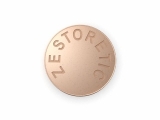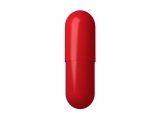Medication induced erectile dysfunction
Millions of men around the world experience erectile dysfunction (ED) at some point in their lives. While ED is often linked to aging, stress, and lifestyle factors, medication-induced ED is a lesser-known but equally prevalent issue. Many medications can dampen sexual desire and function, causing a significant impact on the patient's quality of life and relationships.
From antidepressants to hypertension medications, a wide range of drugs can cause ED by interfering with the physical and psychological mechanisms involved in sexual arousal and response. Unlike some lifestyle-related factors, medication-induced ED requires a thorough understanding of the underlying causes and their potential solutions.
This article aims to explore the various medications commonly linked to ED and their impact on sexual health. We will also discuss strategies for managing medication-induced ED and improving overall sexual function in affected individuals.
Medication Induced Erectile Dysfunction
Understanding the Link between Medications and Sexual Health
Erectile dysfunction, defined as the inability to maintain or achieve an erection firm enough for sexual activity, affects millions of men worldwide. Although many factors contribute to this condition, medication-induced erectile dysfunction is a significant risk factor.
Common Medications that Cause Erectile Dysfunction
Numerous medications can cause erectile dysfunction as a side effect, including antidepressants, antihypertensives, antipsychotics, and anti-androgens. These medications affect different parts of the body, including the nervous system, blood vessels, hormones, and psychological factors.
How Medications Cause Erectile Dysfunction
Medications that cause erectile dysfunction work by reducing blood flow to the penis, altering the central nervous system, or interfering with hormone production. These effects can occur shortly after starting medication or take some time to develop. Long-term use or high doses of medications increase the likelihood of developing medication-induced erectile dysfunction.
Treatment Options
The first step in treating medication-induced erectile dysfunction is to identify the offending medication and discuss alternative treatments with your healthcare provider. Doctors may also prescribe erectile dysfunction medications like sildenafil or tadalafil, psychotherapy, or recommend lifestyle changes such as exercise, diet, and stress management.
- Discuss any medication-related changes in sexual function with your healthcare provider.
- Take medications as prescribed and avoid self-medication.
- Practice healthy lifestyle habits to prevent medication-induced erectile dysfunction.
| Medication Class | Common Medications |
|---|---|
| Antidepressants | Prozac, Zoloft, Paxil |
| Antihypertensives | Losartan, Amlodipine, Lisinopril |
| Antipsychotics | Risperdal, Serquel, Zyprexa |
| Anti-androgens | Flutamide, Bicalutamide, Nilutamide |
Overall, medication-induced erectile dysfunction is a prevalent and underdiagnosed condition that can negatively impact a person's quality of life. It is essential to discuss any changes in sexual function with your healthcare provider to determine the best course of action.
Understanding the Link between Medications and Sexual Health
Introduction
Medication induced erectile dysfunction is a common side effect of many prescription drugs. It can negatively impact sexual health and lead to relationship distress. Understanding the link between medications and sexual health is important for managing the side effects of prescriptions and maintaining healthy intimate relationships.
Types of Medications Linked to Sexual Dysfunction
Various types of medications have been linked to sexual dysfunction, including antidepressants, antipsychotics, blood pressure medications, and hormonal treatments. These medications may affect sexual health through different mechanisms, such as altering hormone levels or diminishing blood flow to the penis.
Impact of Medication Induced Erectile Dysfunction
The impact of medication induced erectile dysfunction can be far-reaching, affecting both the individual taking the medication and their partner. It can lead to decreased pleasure during sexual activity, decreased intimacy between partners, and relationship distress. For some individuals, the side effects may be severe enough to affect compliance with medication regimens.
Management and Treatment
Management and treatment of medication induced erectile dysfunction may involve adjusting medication dosages or switching to alternative medications. In some cases, a combination of medication and therapy may be effective in addressing the sexual side effects of prescription drugs. Open communication between the patient and healthcare provider is important for finding an effective solution.
Conclusion
Understanding the link between medications and sexual health is crucial for maintaining healthy intimate relationships. If medication induced erectile dysfunction is affecting sexual health, open communication with a healthcare provider is important for finding a solution. With the right management and treatment, individuals can minimize the negative impact of medication on sexual health and maintain a fulfilling sexual life.
What is Medication Induced Erectile Dysfunction?
Definition
Medication induced erectile dysfunction (MIED) is a condition where a man has difficulty achieving or maintaining an erection during sexual activity due to the side effects of certain medications. These medications may include antidepressants, antipsychotics, blood pressure medications, and chemotherapy drugs.
Causes
MIED can occur when medications disrupt the normal flow of blood to the penis by dilating or narrowing blood vessels, interfering with nerve impulses, or altering hormone levels. Some medications might also cause psychological effects, including anxiety and depression, which can also lead to erectile dysfunction.
Symptoms
The symptoms of MIED are the same as those of erectile dysfunction caused by other factors. They may include difficulty achieving or maintaining an erection, reduced sexual desire, and difficulty achieving orgasm.
Treatment
The type of treatment for MIED will depend on the cause and severity of the condition. In some cases, changing medications or adjusting dosages may help alleviate symptoms. In other cases, medication like sildenafil or tadalafil, which enhance blood flow to the penis, may be prescribed. Additionally, counseling and psychotherapy may be beneficial in managing psychological symptoms of MIED.
Common Medications that Can Cause Erectile Dysfunction
Antidepressants
Antidepressants are known for their ability to cause sexual side effects and can significantly affect a man's ability to achieve or maintain an erection. These drugs work by altering the levels of serotonin and other neurotransmitters in the brain, which can disrupt normal sexual function.
- Selective serotonin reuptake inhibitors (SSRIs) such as fluoxetine (Prozac) and sertraline (Zoloft) are commonly prescribed antidepressants that can cause ED.
- Tricyclic antidepressants (TCAs) like amitriptyline (Elavil) and desipramine (Norpramin) can also cause sexual dysfunction.
Blood Pressure Medications
High blood pressure can be a significant risk factor for erectile dysfunction, and some medication used to treat the condition can also contribute to ED.
- Beta-blockers such as metoprolol (Lopressor) and propranolol (Inderal) can decrease the amount of blood flow to the penis, making it harder to achieve an erection.
- Diuretics, also known as water pills, can also contribute to ED by lowering levels of potassium in the body and interfering with normal hormonal function.
Hormonal Medications
Hormonal medications can also affect a man's sexual health, particularly if they alter normal testosterone levels in the body.
- Androgen deprivation therapy, a common treatment for prostate cancer, can cause ED by lowering testosterone levels.
- Corticosteroids such as prednisone can also interfere with normal sexual function by suppressing the body's natural production of hormones.
It's important to speak with your healthcare provider if you are experiencing erectile dysfunction, especially if you are taking any medications that may contribute to the problem. They can help you understand the potential risks and benefits of each medication and work with you to develop a treatment plan that prioritizes both your overall health and your sexual wellness.
Managing Medication Induced Erectile Dysfunction
1. Communication with your healthcare provider
It is important to discuss any sexual dysfunction you are experiencing with your healthcare provider, as they may be able to adjust your medication or prescribe alternative options. Do not be afraid to bring up the topic, as sexual health is a crucial aspect of overall well-being.
2. Lifestyle modifications
Certain lifestyle changes can help manage medication-induced erectile dysfunction. Maintaining a healthy diet, regular exercise, quitting smoking, limiting alcohol consumption, and managing stress levels can all contribute to improving sexual health.
3. Alternative treatments
In some cases, alternative treatments such as herbal supplements or acupuncture may be helpful in managing erectile dysfunction. However, it is important to consult with a healthcare provider before trying any alternative options, as they may interact with current medications or have adverse effects.
4. Medication options
Some medications, such as phosphodiesterase type 5 inhibitors (PDE5Is), can help manage medication-induced erectile dysfunction. These medications work by increasing blood flow to the penis and improving overall sexual function. However, it is important to discuss potential side effects and interactions with a healthcare provider before starting any new medication.
5. Psychological counseling
Medication-induced erectile dysfunction can have a significant impact on mental health and self-esteem. Psychological counseling can help individuals process and manage these emotions, as well as teach coping mechanisms for managing sexual dysfunction.
Overall, managing medication-induced erectile dysfunction may involve a combination of lifestyle modifications, alternative treatments, and medication options. Communication with a healthcare provider is crucial in developing a personalized treatment plan.
Tips to Improve Sexual Health while on Medication
1. Communicate with your healthcare provider
It is essential to discuss any concerns about sexual health with your healthcare provider. Let them know if you are experiencing any side effects related to sexual function, and ask if there are alternative medication options available.
2. Consider lifestyle changes
Regular exercise, a healthy diet, and stress-reducing activities such as meditation or yoga can improve sexual health. Quitting smoking and limiting alcohol consumption can also have positive effects on sexual function.
3. Use sexual aids
If medication-induced erectile dysfunction is a problem, using sexual aids such as vacuum pumps, penile injections, or prosthetic implants may be helpful. Discuss these options with your healthcare provider.
4. Talk to your partner
It is essential to communicate openly with your partner about any issues related to sexual function. This can help reduce stress and anxiety, which may be contributing to the problem.
5. Practice self-care
Taking care of your mental health is essential for improving sexual function. Practicing self-care activities such as getting enough sleep, taking time for hobbies, and maintaining social connections can be beneficial.
6. Seek therapy
If medication-induced sexual dysfunction is affecting your mental health and relationships, seeking therapy may be helpful. A therapist can provide coping strategies and offer support.
7. Join a support group
Joining a support group can help you connect with others who are going through similar experiences. This can provide a sense of community and support.
| Medications that may cause sexual dysfunction | Alternative medications (not guaranteed to work for everyone) |
|---|---|
Follow us on Twitter @Pharmaceuticals #Pharmacy
Subscribe on YouTube @PharmaceuticalsYouTube





Be the first to comment on "Medication induced erectile dysfunction"